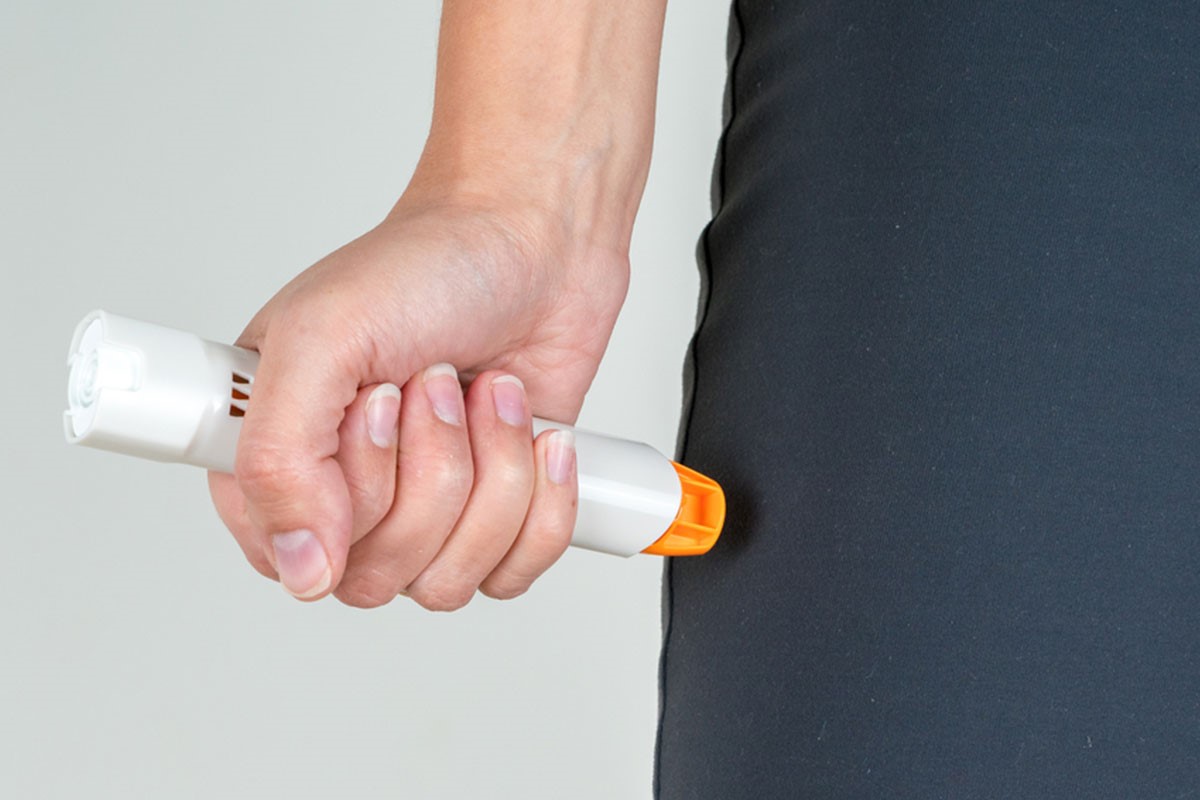
Anaphylactic shock: symptoms and what to do in first aid
Anaphylactic shock is a particularly severe and sudden-onset allergic reaction that must be recognised and treated promptly because it can be life-threatening
Anaphylactic shock can occur following the intake of a drug, small amounts of a food you are allergic to, or after insect bites
The only drug that can reverse the symptoms of anaphylaxis is adrenaline, a true life-saving medication that those with known severe allergies should always carry with them.
For this reason, anyone who has experienced allergic reactions to certain substances or insect stings in the past should refer to an allergy specialist.
The specialist in fact, in addition to determining the cause of the allergy, can explain to the patient what symptoms should make him or her suspect anaphylaxis and instruct him or her on when and how to use adrenaline.
Anaphylactic shock: what it is and what causes it
Anaphylactic shock is a sudden, extremely severe allergic reaction that can be fatal.
Anaphylactic shock can be caused by exposure to an allergen to which one is already sensitised: the reaction may not occur on first contact with that substance, but may occur the next time, after the individual has previously come into contact with it.
There are several substances that can cause an anaphylactic shock in an allergic person: food, drugs, insect bites or latex.
In the allergic person, the anaphylactic reaction can be facilitated by certain cofactors, such as the intake of non-steroidal anti-inflammatory drugs (NSAIDs), alcohol intake, the presence of infections, exercise, very high temperatures or humidity, and in women, menstruation.
Symptoms of anaphylactic shock
In the course of anaphylaxis, large quantities of histamine and other substances are released into the body, causing blood vessels to dilate suddenly and abruptly, possibly leading to a drop in blood pressure and loss of consciousness.
Symptoms that should make one suspect that an anaphylactic reaction is occurring are:
- swelling of the lips, glottis and eyelids (oedema);
- constriction of the throat;
- difficulty breathing;
- altered tone of voice;
- hives on various parts of the body;
- feeling of fainting;
- nausea;
- vomiting;
- abdominal pain;
- diarrhoea;
- feeling unwell.
When to consult an allergist?
Anaphylactic shock can occur immediately (from a few minutes up to 2 hours) following contact with or intake of a substance to which the person is allergic.
Alarm bells that may suspect one is at risk of severe allergic reactions are episodes of
- hives
- difficulty breathing
- malaise, e.g. after a meal, taking a medication, insect bite.
In these cases, it is necessary to consult an allergy specialist to carry out an allergological diagnosis, which may include blood tests, skin tests and other allergological tests.
Based on the result of the tests and after considering the patient’s medical history, the allergy specialist will be able to identify a cause of the allergy, assess the possible risk of future allergic reactions and whether adrenaline should be prescribed.
If adrenaline is prescribed, the specialist will explain in detail to both the patient and his or her family how and when to use it.
First aid: what to do in case of anaphylactic shock
Adrenaline is the only drug that can reverse anaphylactic shock and save the person’s life.
For this reason, given the rapid onset of an anaphylactic reaction and its extreme severity, it is important for those who are aware of severe allergies to carry this drug with them at all times.
Adrenaline is sold in a self-injectable form: a ‘pen’ with a safety cap at one end and a needle tip at the other which, when pressed against the thigh, instantly injects a single controlled dose of the drug.
Following the administration of adrenaline, the person must be taken to the emergency room, where he or she will be monitored until fully recovered.
If the person does not have adrenaline with them, Emergency Number must be called immediately.
While waiting for medical intervention, cortisone, antihistamines or bronchodilators can be administered, but taking adrenaline remains essential for the remission of the anaphylactic reaction.
In case the person suffering from anaphylactic shock goes into cardiovascular arrest, in addition to calling for help, cardiopulmonary resuscitation must be started immediately, which will be continued by medical personnel once they arrive on the scene.
What are the criteria for prescribing adrenaline?
The prescription of adrenaline is indicated in patients with previous anaphylaxis, who are sensitive to allergens that cannot be eliminated or easily avoided or whose cause cannot be identified (idiopathic anaphylaxis).
Patients suffering from specific diseases, such as systemic mastocytosis involving overproduction of certain blood cells, are also considered to be at risk of anaphylactic shock and must have adrenaline available.
In these situations, the allergy specialist fills out and gives the patient the treatment plan for adrenaline.
Read Also
Emergency Live Even More…Live: Download The New Free App Of Your Newspaper For IOS And Android
Allergies To Stinging Insects: Anaphylactic Reactions To Wasps, Polistines, Hornets, Bees
Anaphylactic Shock: What It Is And How To Deal With It
Wasp Sting And Anaphylactic Shock: What To Do Before The Ambulance Arrives?
Anaphylactic Shock: What It Is, Symptoms, Diagnosis And Treatment
What Is And How To Read The Allergy Patch Test
Allergies: New Drugs And Personalised Treatment
When Can We Talk About Occupational Allergies?
Nickel Allergy: What Objects And Foods To Avoid?
Food Allergies: Causes And Symptoms
Adverse Drug Reactions: What They Are And How To Manage Adverse Effects
Symptoms And Remedies Of Allergic Rhinitis
Allergic Conjunctivitis: Causes, Symptoms And Prevention
Allergic Contact Dermatitis And Atopic Dermatitis: The Differences
Spring Arrives, Allergies Return: Tests For Diagnosis And Treatment
Symptoms And Foods To Avoid With Nickel Allergy
Contact Dermatitis: Can A Nickel Allergy Be The Cause?
Respiratory Allergies: Symptoms And Treatment


